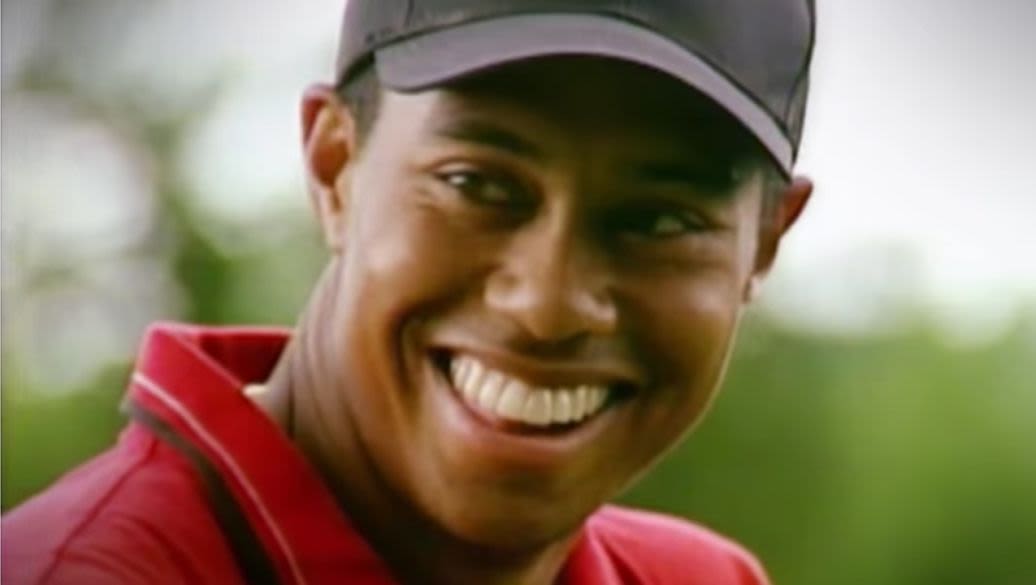Events
Tiger Woods’s Win at the Masters Came Exactly 21 Years After Winning His First Major
By T.J. Auclair
Published on

PGA Tour on YouTube
Hard to believe, but April 13, 2018 marked the 21st anniversary of the 1997 Masters, where Tiger Woods blew the field away with an amazing 12-stroke victory to win his first major.
Since then, he's added 14 more majors -- second only to the great Jack Nicklaus's 18 major titles.In six previous rounds at the Masters -- all as an amateur -- Tiger had never broken par. He was 11 over through those six rounds, in fact. And through nine holes in the first round at the 1997 Masters, it didn't look as though it was going to get much better. He went out in 4-over 40. Far from an ideal start.
But then, beginning with a birdie on the 10th hole, Woods flipped a switch and raised his game to a level of dominance rarely seen in golf, but one he would somehow maintain for the next decade.
Woods had a 6-under 30 on the back side and opened with a most unlikely 2-under 70, leaving him in fourth-place after 18 holes, three behind leader John Huston. The second shot is where Tiger began to put his foot down. He fired a 6-under 66 to build a three-stroke lead on Scotland's Colin Montgomerie.
Though Montgomerie was impressed by Woods, he made it very clear that there were still 36 holes left to play. "The pressure is mounting now," he said. "Things always get harder here on the weekend. I have more major-championship experience than he has. We'll just have to see what happens."
What happened was that Woods went one shot better in round three with a 7-under 65 -- nine shots better than Montgomerie's 74 -- to take an eye-popping nine-stroke lead over Costantino Rocca into the final round.
Montgomerie's tune about Tiger's chances understandably changed after witnessing, firsthand as a playing partner, Saturday's 65.
"All I have to say is one brief comment," Montgomerie said. "There is no chance. We're all human beings here. There's no chance humanly possible that Tiger is going to lose this tournament. No way."
And was Monty ever right. Woods would card a final-round of 3-under 69 for a record 12-stroke Masters victory over Tom Kite at 18 under.
Shockingly, that wouldn't even be Tiger's largest margin of victory in a major. That was accomplished in the 2000 U.S. Open at Pebble Beach, where he was the only player in the field to finish the tournament under par -- a remarkable 12-under par -- 15 shots clear of the field.
Woods had a 6-under 30 on the back side and opened with a most unlikely 2-under 70, leaving him in fourth-place after 18 holes, three behind leader John Huston. The second shot is where Tiger began to put his foot down. He fired a 6-under 66 to build a three-stroke lead on Scotland's Colin Montgomerie.
Though Montgomerie was impressed by Woods, he made it very clear that there were still 36 holes left to play. "The pressure is mounting now," he said. "Things always get harder here on the weekend. I have more major-championship experience than he has. We'll just have to see what happens."
What happened was that Woods went one shot better in round three with a 7-under 65 -- nine shots better than Montgomerie's 74 -- to take an eye-popping nine-stroke lead over Costantino Rocca into the final round.
Montgomerie's tune about Tiger's chances understandably changed after witnessing, firsthand as a playing partner, Saturday's 65.
"All I have to say is one brief comment," Montgomerie said. "There is no chance. We're all human beings here. There's no chance humanly possible that Tiger is going to lose this tournament. No way."
And was Monty ever right. Woods would card a final-round of 3-under 69 for a record 12-stroke Masters victory over Tom Kite at 18 under.
Shockingly, that wouldn't even be Tiger's largest margin of victory in a major. That was accomplished in the 2000 U.S. Open at Pebble Beach, where he was the only player in the field to finish the tournament under par -- a remarkable 12-under par -- 15 shots clear of the field.
#Masters
